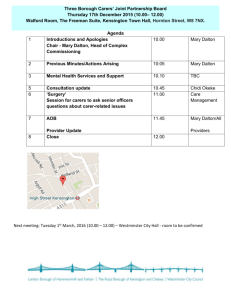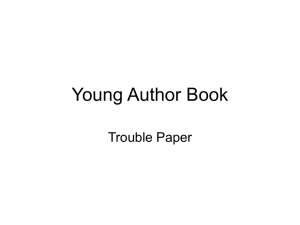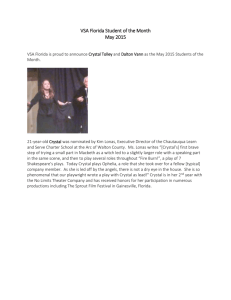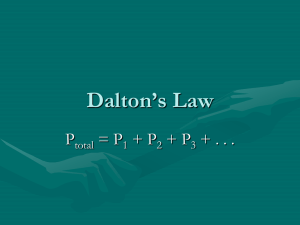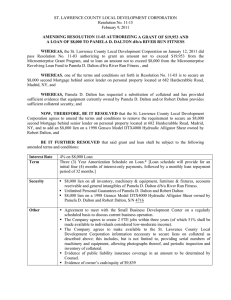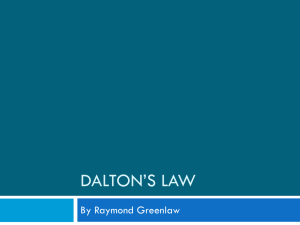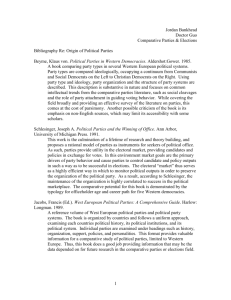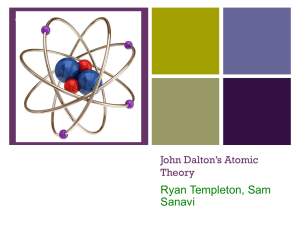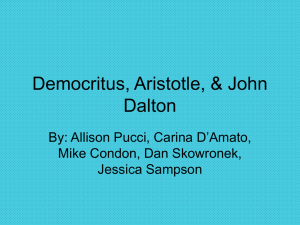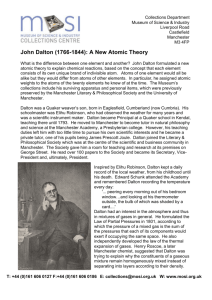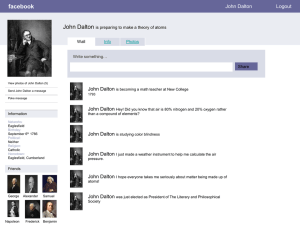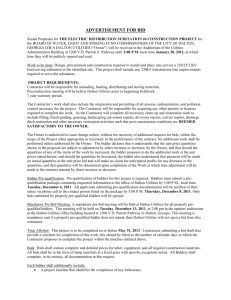Advocacy
advertisement
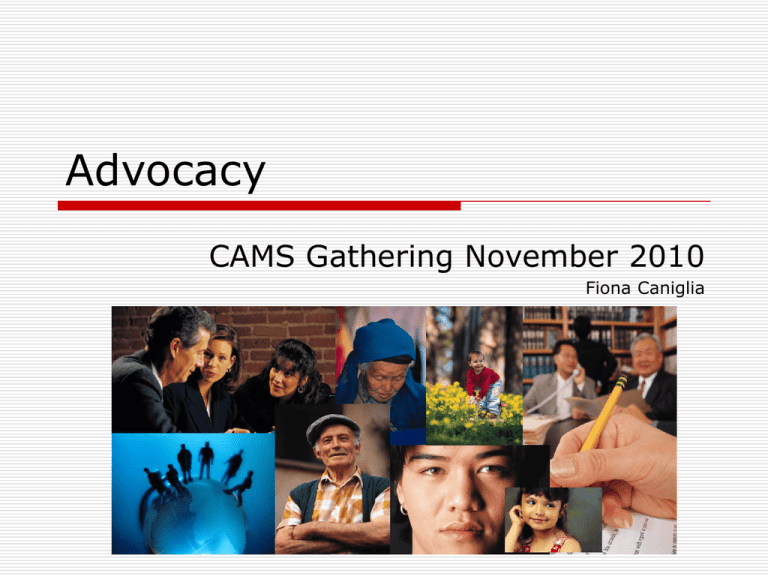
Advocacy CAMS Gathering November 2010 Fiona Caniglia What is policy? Social policy is a process of ….allocation of material and human resources according to certain theories and values for the purpose of achieving ….social, economic, cultural and political outcomes in society. Jamrozik, 2005:45 What is policy? Social policy is not a static thing, nor is the society in which the policy process takes place a static thing. Jamrozik, 2005 What is policy? “The scope of social policy includes all areas of personal and social life which contribute to the well-being of citizens or its absence.” Dalton et al, 1996 What is policy? Policy is at the heart of how society is organised: Who Who Who Who Who gets what? wins? loses? is left to fend for themselves? decides? Dalton et al, 1996 What is policy? Legislation: the most explicit and formalised policy Written policy Programs – policy implementation. Dalton et al, 1996:7-8 What is policy? “In a climate where economic values and indicators dominate policy debate we emphasise that every economic and political decision has social implications.” Dalton et al, 1996:7 The dimension of power Who wins? Who loses? Who decides? Political economy tradition. Dalton et al, 1996:7 What is the policy process? Static elements (structures) Dynamic elements A contest over social goals in which there are many players/actors. Dalton et al, 1996:7 What is the policy process? Linear: Planning Formulation Implementation and administration Monitoring and evaluation Dalton et al, 1996:7 What is the policy process? Rational decision making Problem identification Analysis Informing the public Development of public goals Building public support and legitimation Program design Implementation Evaluation Gilbert and Specht in Dalton et al, 1996:16 What is the policy process? Strategic and analytical policy process: The analytical and strategic elements of policy process The assumption that society is complex Research is important but has limits Power is significant but not absolute Dalton et al, 1996:7 Personal, social and political self awareness Understand and articulate your own standpoint Ask a series of questions (of yourself, the process) Locate your own interests, purposes and relationships to the issues Analyse personal and professional goals Analyse relevant issues and values Analyse which strategies are ethical in gaining some power and influence Dalton et al, 1996:7 Underpinning goals and assumptions All policy decisions involve assumptions about the nature of human beings and how societies actually work. All policy positions taken by other stakeholders (including the nongovernment sector) also involve assumptions….. An approach to policy development Problem identification Analysing the organisational, systemic and broader societal context, issues, debates and opportunities: key stakeholders, decision making processes, key milestones, relationships, structures, points of influence (formal, bottom up, top down, informal ….) Analyse key questions: who wins, who loses, who decides Consider how power and influence might be exercised Develop a plan Research - evidence An approach to policy development Engagement with stakeholders (anecdotes, case studies, opinions, experiences, sources of evidence, solutions) Building movements, developing a policy community, alliances, partnerships Maintain dialogue between research and engagement Develop alternatives, agree with proposals, disagree and propose workable solutions. Publish/submit/promote Negotiations / dialogue Evaluate outcomes Continue re implementation and monitoring. Jamrozik, 2005 An approach to policy development Publish: Submission, statement etc. Lean and mean What you want, who is responsible, qualifying statements (if relevant), time frame. Common problems Over-emphasis on issues and problems and when asked, we continue to talk about issues Lack of evidence based research Too much consultation and not enough engagement Struggle to articulate solutions Recommendations are overly general. The policy process Community development and community action theories and practices contribute a lot to mobilising citizens to participate in policy making. Dalton et al, 1996
